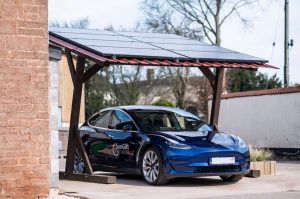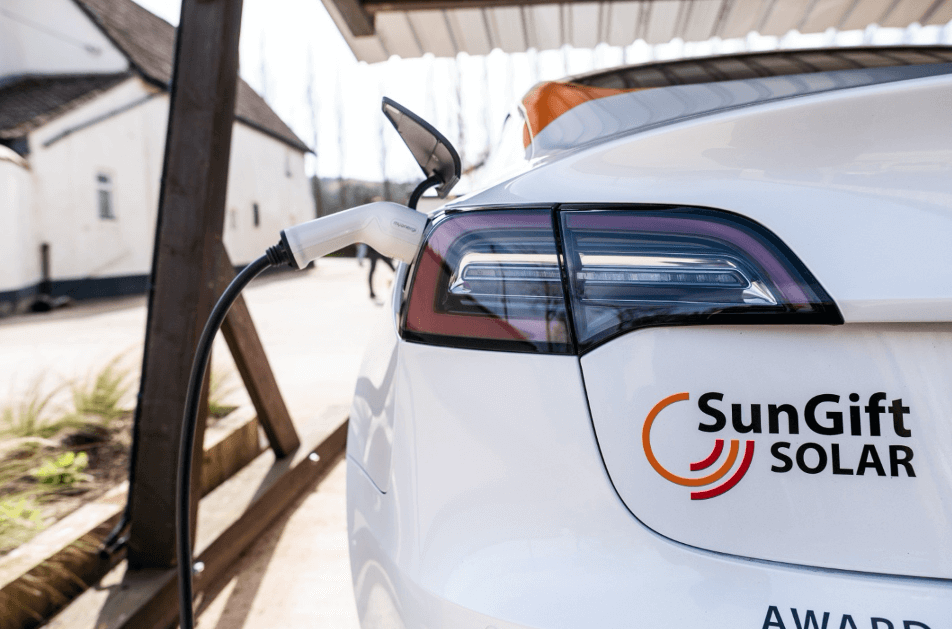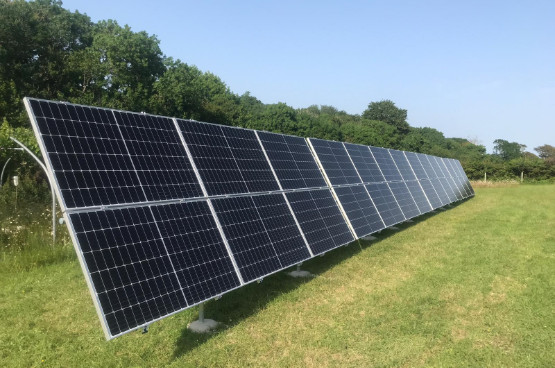Would you like to charge up your electric vehicle (EV) with free, clean energy? With a solar car charger you can do just that.
It is widely accepted that the mass rollout of solar PV and EVs will be a fundamental part of the switch away from fossil fuels and towards a renewable, zero-carbon future (alongside wind and hydrogen).

One of SunGift’s fleet of electric vehicles charging under the solar carport at our offices in Exeter. This Tesla Model 3 belongs to our founder Gabriel and has a range of over 300 miles.
So why not combine these two amazing bits of technology at your home now and start reaping the rewards?
A 4kWp solar PV system in Exeter, facing due south and pitched at 35 degrees with no shading, can expect to generate up to roughly 4800 kWh of energy per year*. Ollie’s Tesla Model 3 EV uses roughly 0.25kWh to drive 1 mile (he is a very sensible and efficient driver). That means that the 4800 kWh of solar generation is the equivalent to 19,200 miles in Ollie’s Tesla. The average annual mileage of a car in England is about 7600 miles (National Travel Survey: England 2018). This means that a 4kWp solar PV system, over the course of a year, can generate roughly 2 and a half times the amount of energy required for an average EV.
You’ll probably use the majority of your generated PV energy to power your home appliances, heat water or charge a home battery. However, this example gives you a good idea of how much potential there is for solar EV charging. If you managed to put just 40% of the 4800 kWh into your EV, that would get you the full 7600 miles. Even if you managed only 20%, that would get you 3800 miles, or half of the annual average mileage.
In the next installment you can find out all about the basic principles of EV charging. Then we’ll move on to the different types of chargers available, ending with solar EV charging. Spoiler alert – the best chargers give you total control of how your EV charges and can divert surplus energy from your solar PV into your car’s battery.
Read “Driving on sunshine: EV charging basics” here
* If you need a quick tutorial on what terms like kWp and kWh mean, then check out this post where I’ll explain what they mean in more detail.

 Solar PV Contractor of the Year 2024
Solar PV Contractor of the Year 2024
